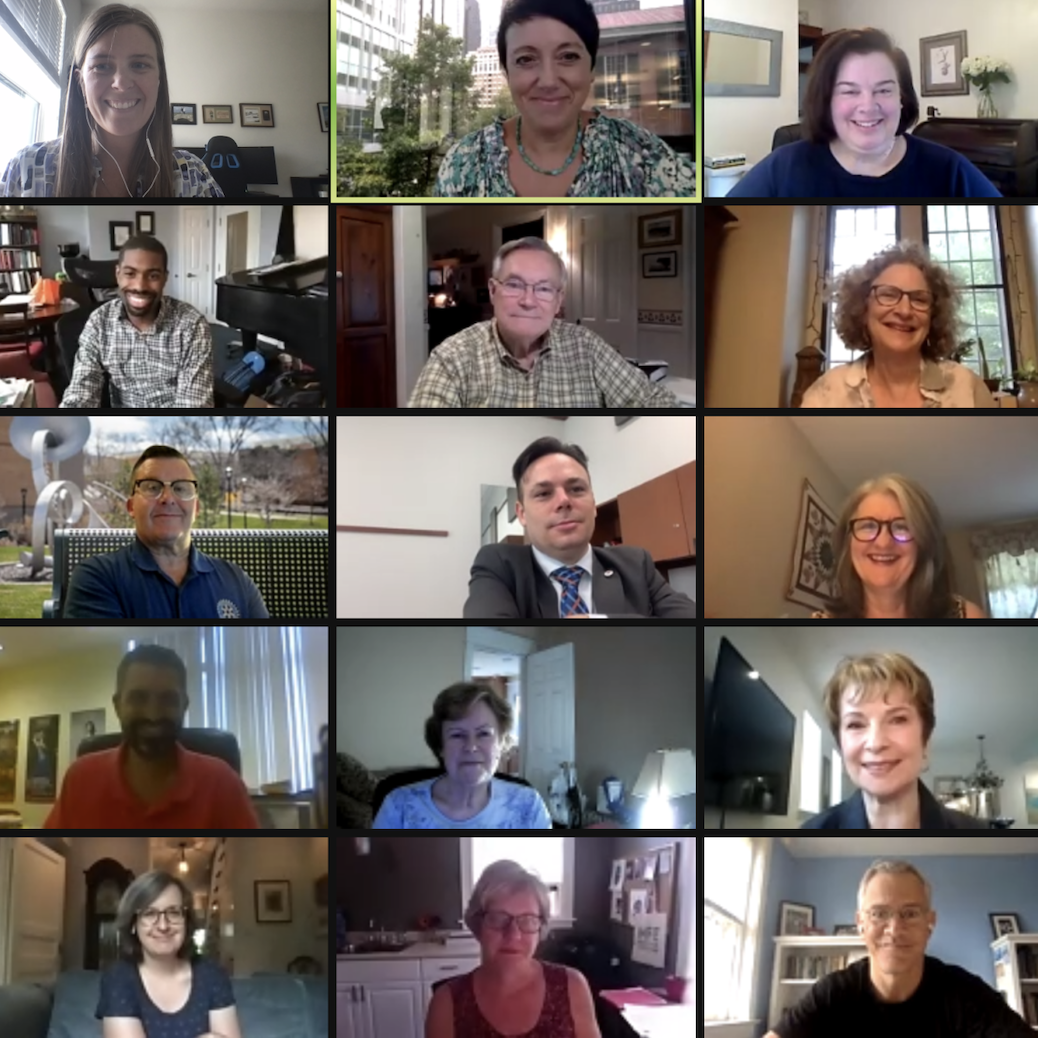To their immense credit, Monica Buffington (Kennett Symphony), Arreon Harley-Emerson & Brittney Lynn Stanton (Choir School of Delaware), Alicia Brozovich (Trenton Children’s Chorus), and Alex Shaw (World Café Live) openly and honestly discussed their respective organizations’ journeys toward embedding and centering racial equity in their activities and programs, in their missions, and in their visions.
But let me back up about and share some background about why these people, why this Zoom room, and why this topic.
First, this event took place as part of our, The Presser Foundation’s, drive to provide resources to grantees that go “beyond the check.” In other words, the Foundation strives to be a resource for grantees beyond solely its grantmaking. Thus, the idea for the Next Movement series was born. Last year, The Presser Foundation and the American Composers Forum hosted five Idea Forums focused on resilience, creativity, and programming during the COVID-19 pandemic. This year, we reimagined the five Idea Forums to become one panel discussion that the above participants graciously agreed to participate in.
Secondly, the Foundation is working to center racial equity within our own organization. We’ll share more on this later, but we are actively striving in our tactics and in our strategy to become a more equitable, a more inclusive, and a more just organization. While we hoped that this panel would be beneficial for grantees, we also understand its applicability to our own efforts.
So as we planned this event, we prepped questions, shared them with the panelists, and the panelists shared their thoughts about what they wanted to say. I knew at that point that the variety of organizations (two children’s choirs/schools, one presenting music space with a strong focus on education, and one symphony), the variety of staff/board perspectives (two executive directors, one education-focused staff member, one marketing/development-focused staff member, and one board member), and the various stages of how each is centering racial equity would make for an enlightening and enriching discussion.
Yet even those high expectations were surpassed. Throughout the 90-minute event, the panelists were open, honest, and vulnerable. They not only shared the victories and positive steps they are taking to centering racial equity, but they also discussed the challenges they face. They mentioned the importance of changing the language of “at-risk” and “underserved.” They talked about actively pushing at all times to foster and facilitate sustainable change. They shared how you can sympathetically “vibrate” with people in your organization with the same ideas and vision to advancing and centering equity. They openly discussed the stages they are in, revealed past successes and trials, and shared the challenges they face with getting everyone within the organization on board.
I could go on and on about the event, how quickly it went by, how we wish we had more time, and how positive the participants’ feedback has been so far. Instead of typing pages and pages, I would encourage you to watch the recording. I would bet that you would learn at least one thing relevant for your organization.
Password: 2XzF!8!M
And if you don’t have even 10 minutes to watch it, I would encourage you to check out the resources shared by the panelists.
- League of American Orchestras: Equity, Diversity, and Inclusion Resource Center
- Institute for Composer Diversity
- Inclusive Language Guide
- Delaware Business Times column by Harley-Emerson: “Viewpoint: Delaware has a #PhilanthropySoWhite problem”
To conclude, The Presser Foundation is proud to partner with such extraordinary grantees and organizations. As a new staff member, I am thrilled to be part of an organization that takes its commitment to centering racial equity and to being a true partner to and amplifier of its grantees, seriously. In addition, I’m even more eager than before to continue learning from and partnering with amazing nonprofits in the Greater Philadelphia area.








